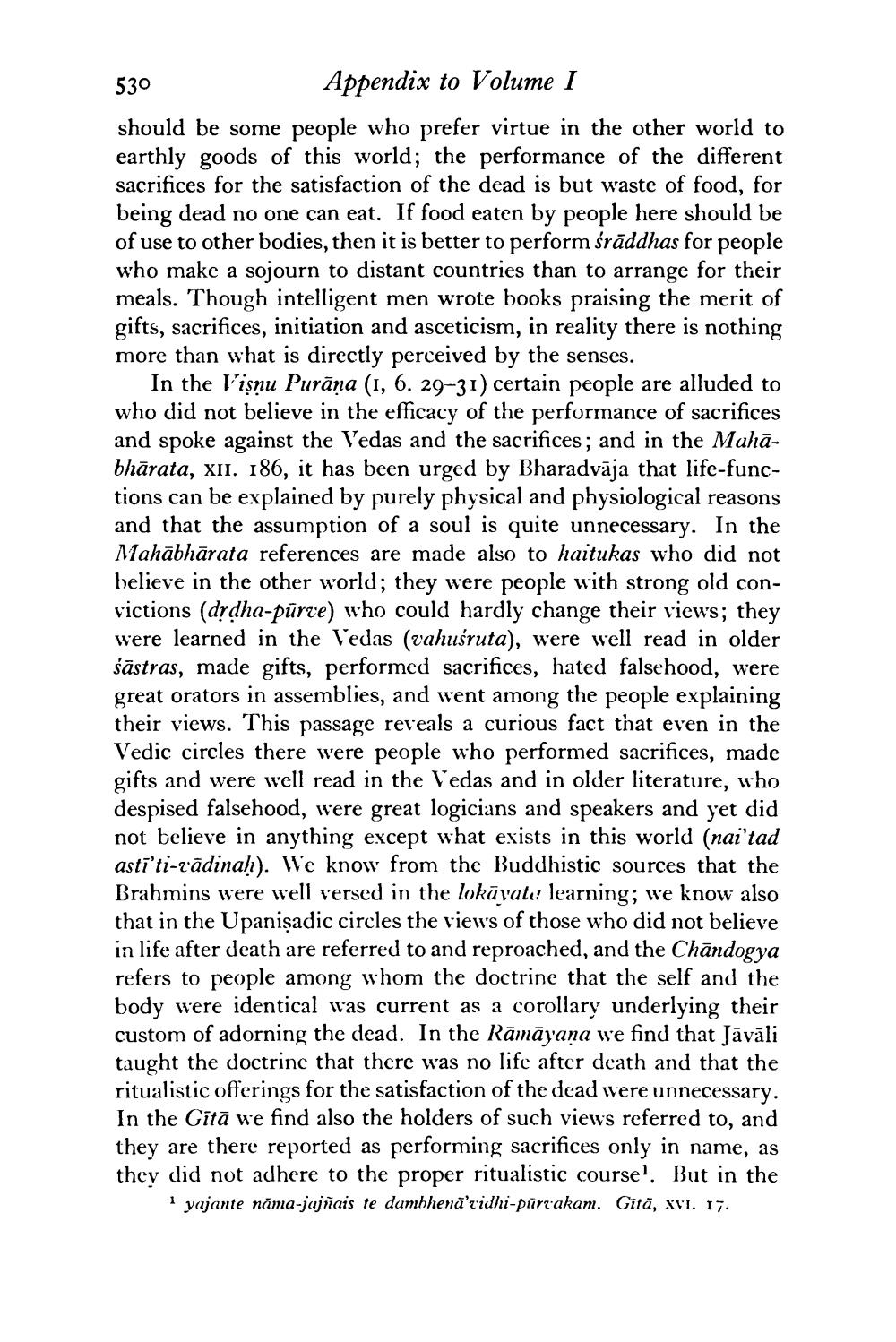________________
530
Appendix to Volume I
should be some people who prefer virtue in the other world to earthly goods of this world; the performance of the different sacrifices for the satisfaction of the dead is but waste of food, for being dead no one can eat. If food eaten by people here should be of use to other bodies, then it is better to perform śraddhas for people who make a sojourn to distant countries than to arrange for their meals. Though intelligent men wrote books praising the merit of gifts, sacrifices, initiation and asceticism, in reality there is nothing more than what is directly perceived by the senses.
In the Visnu Purāņa (1, 6. 29–31) certain people are alluded to who did not believe in the efficacy of the performance of sacrifices and spoke against the Vedas and the sacrifices; and in the Mahābhārata, XII. 186, it has been urged by Bharadvaja that life-functions can be explained by purely physical and physiological reasons and that the assumption of a soul is quite unnecessary. In the Mahabharata references are made also to haitukas who did not believe in the other world; they were people with strong old convictions (drdha-pūrve) who could hardly change their views; they were learned in the Vedas (vahuśruta), were well read in older šāstras, made gifts, performed sacrifices, hated falsehood, were great orators in assemblies, and went among the people explaining their views. This passage reveals a curious fact that even in the Vedic circles there were people who performed sacrifices, made gifts and were well read in the Vedas and in older literature, who despised falsehood, were great logicians and speakers and yet did not believe in anything except what exists in this world (nai'tad asti'ti-vādinaḥ). We know from the Buddhistic sources that the Brahmins were well versed in the lokāyate learning; we know also that in the Upanisadic circles the views of those who did not believe in life after death are referred to and reproached, and the Chandogya refers to people among whom the doctrine that the self and the body were identical was current as a corollary underlying their custom of adorning the dead. In the Rāmāyaṇa we find that Jāvāli taught the doctrine that there was no life after death and that the ritualistic offerings for the satisfaction of the dead were unnecessary. In the Gita we find also the holders of such views referred to, and they are there reported as performing sacrifices only in name, as they did not adhere to the proper ritualistic course1. But in the 1 yajante nama-jajñais te dambhena'vidhi-pūrvakam. Gītā, XVI. 17.




